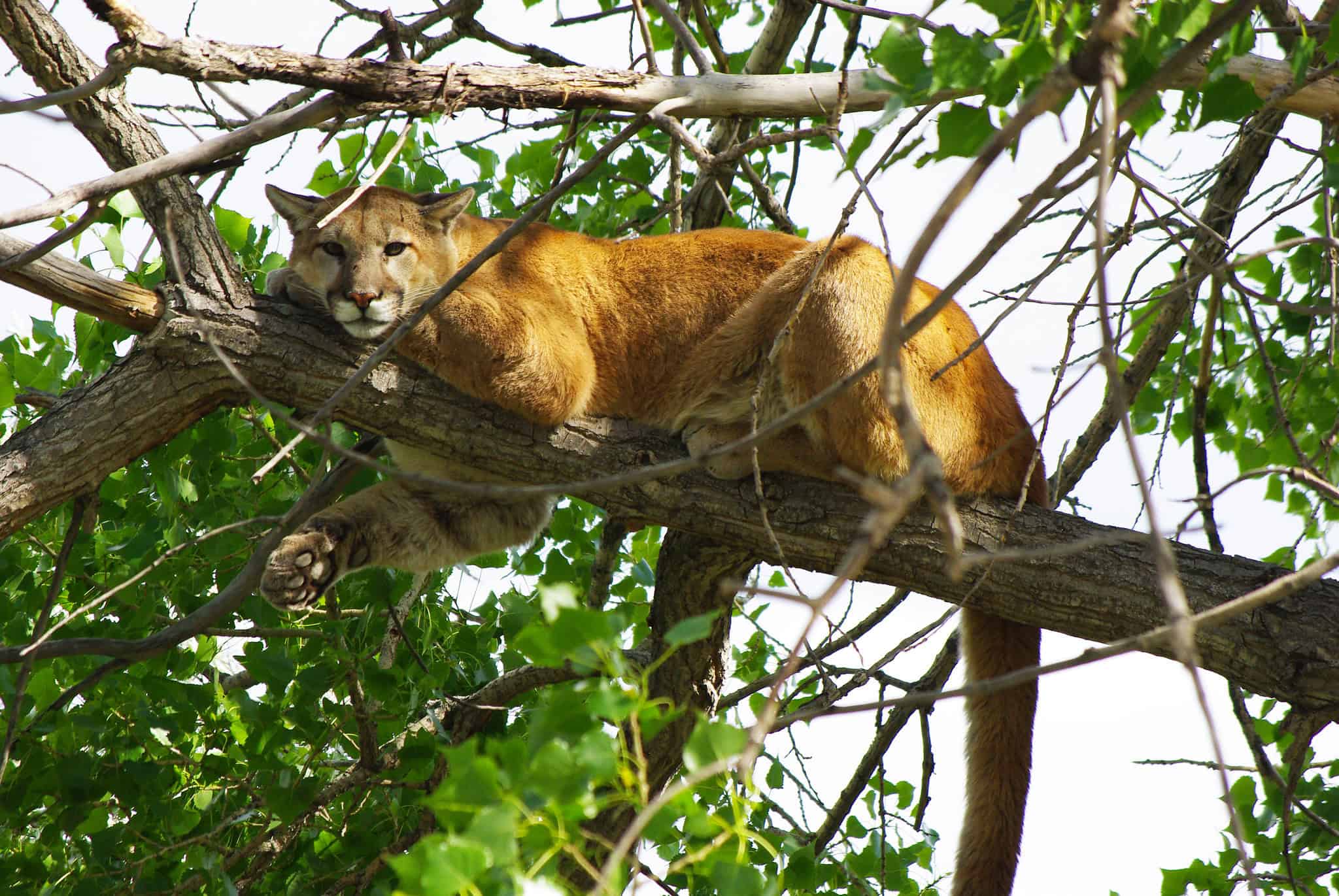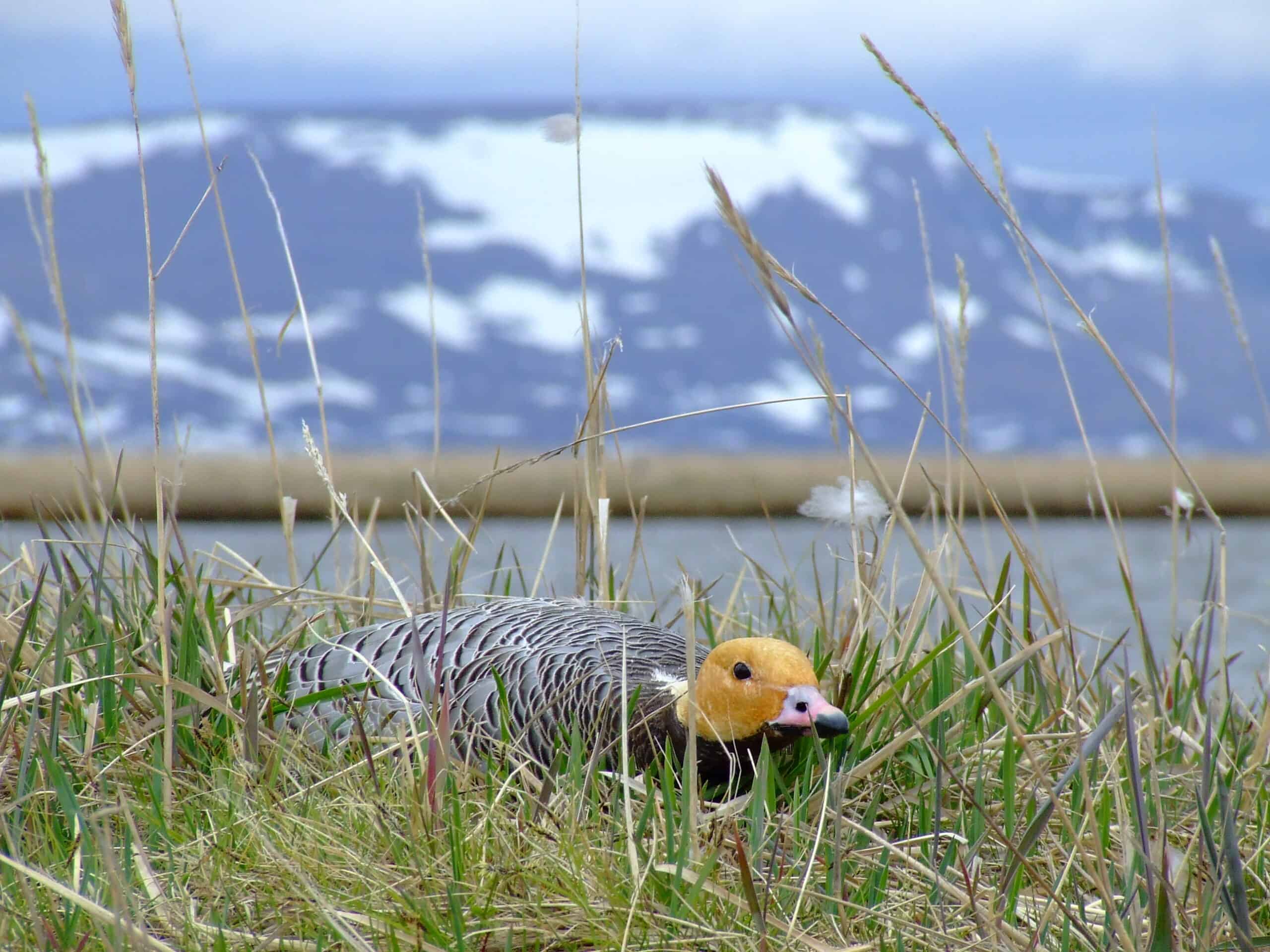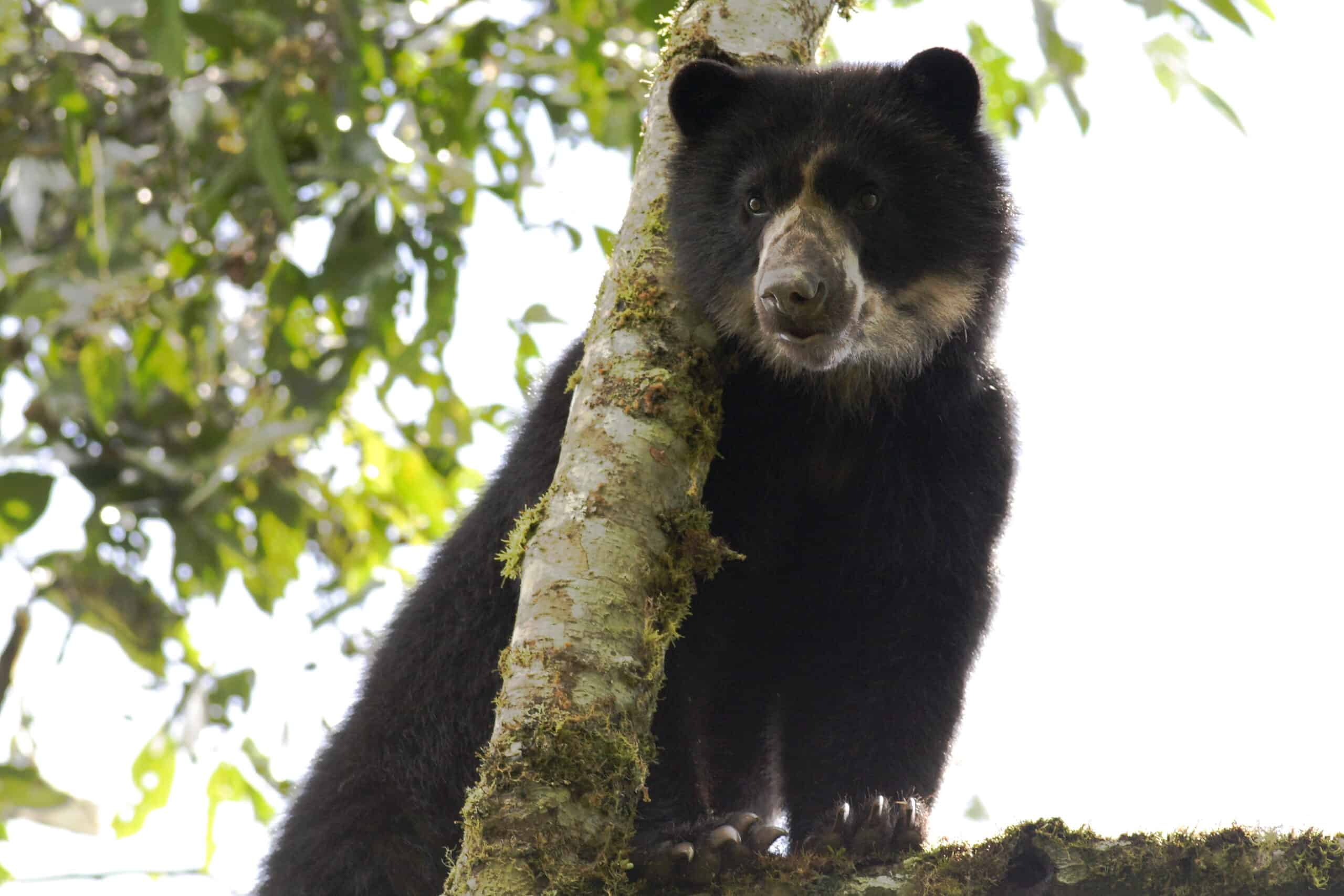Share this article
Introducing the newest TWS Fellows!
Last October, The Wildlife Society recognized 11 outstanding members as TWS Fellows for their contributions to the Society and the wildlife profession as a whole. The awards were presented by then-President Gary Potts during the Annual Conference in Raleigh, North Carolina, in October. Meet your 2016 TWS Fellows below!
The deadline to submit nominations for 2017 TWS Fellows is Feb. 1. Click here to review the criteria and to learn how to submit a nomination.
Rick Baydack
 Dr. Rick Baydack is a Professor in the Clayton H. Riddell Faculty of Environment, Earth, and Resources at the University of Manitoba in the Department of Environment and Geography and recently served as president of TWS. Baydack has been on faculty at the University since 1979, teaching courses in Environmental Field Investigations, Ecosystem Management, Biogeography, Ecological Principles of Natural Resources Management, Thesis Research Planning, Biological Resources Management, and Principles of Wildlife Management. Baydack’s research focus is on developing practical applications of ecosystem management for habitat in order to conserve biodiversity. Recent emphasis has centered on the North American Grouse Partnership, habitat manipulation techniques to increase reproductive success of various species, and determination of the effects of human activities on species survival, especially in agricultural ecosystems.
Dr. Rick Baydack is a Professor in the Clayton H. Riddell Faculty of Environment, Earth, and Resources at the University of Manitoba in the Department of Environment and Geography and recently served as president of TWS. Baydack has been on faculty at the University since 1979, teaching courses in Environmental Field Investigations, Ecosystem Management, Biogeography, Ecological Principles of Natural Resources Management, Thesis Research Planning, Biological Resources Management, and Principles of Wildlife Management. Baydack’s research focus is on developing practical applications of ecosystem management for habitat in order to conserve biodiversity. Recent emphasis has centered on the North American Grouse Partnership, habitat manipulation techniques to increase reproductive success of various species, and determination of the effects of human activities on species survival, especially in agricultural ecosystems.
Baydack’s storied history with The Wildlife Society includes his 2014-2015 presidency, but a number of other highlights, such as serving as the first Canadian Section Representative to Council. During his time on Council, both as representative and president, Baydack served on and volunteered for countless committees and activities. He represented The Wildlife Society in Sapporo, Japan, in 2015 at the 5th International Wildlife Management Congress. Baydack pushed for the first Canada-located TWS conference in more than 10 years, which was held in his home city of Winnipeg and attracted over 1,500 attendees and increased the Society’s visability north of the border. In the wake of his presidency, Baydack continues to volunteer as a chair of the volunteers subcommittee for TWS Annual Conferences and will remain involved with Council activities.
Carol Chambers
 Dr. Carol Chambers is a Professor of Wildlife Ecology at Northern Arizona University’s School of Forestry. She has been at NAU for 20 years and has published more than 80 peer reviewed wildlife related publications, many of which examine the effects of forest management techniques on wildlife populations. A noted expert on bat ecology, Chambers has initiated bat research projects in the Southwestern United States and Latin America. Her most recent work has focused on use of bio-chemical markers to identify small mammal presence and habitat use.
Dr. Carol Chambers is a Professor of Wildlife Ecology at Northern Arizona University’s School of Forestry. She has been at NAU for 20 years and has published more than 80 peer reviewed wildlife related publications, many of which examine the effects of forest management techniques on wildlife populations. A noted expert on bat ecology, Chambers has initiated bat research projects in the Southwestern United States and Latin America. Her most recent work has focused on use of bio-chemical markers to identify small mammal presence and habitat use.
In more than 20 years of involvement with The Wildlife Society, Chambers has made significant contributions at both the local and national levels. She has served as president of the Arizona Chapter, Southwest Section Representative to TWS Council, and on a number of committees including the organizing committee for the 4th International Wildlife Management Congress. As a key player in revitalizing the Southwest Section, she established the section’s first newsletter, as well as the Southwest Section Chapters Hub. As an advocate for diversity in the profession, Chambers is responsible for the initiation of Women of Wildlife Networking Events at the Annual Conference — one of the meeting’s most popular events — and helped organize a diversity symposium in Raleigh. At the local level, she has been involved as an organizer, presenter, or advisor at the Joint Annual Meeting of the New Mexico and Arizona Chapters of The Wildlife Society for many years.
William Clark
 Dr. William Clark is a retired Professor of the Department of Ecology, Evolution, and Organismal Biology at Iowa State University, where he served on faculty for 35 years. He has mentored more than 20 graduate students at Iowa State University, many of whom have obtained careers in several different natural resource agencies and organizations as well as at academic institutions. Much of Clark’s research has been directly linked to effective management of wildlife populations and habitats, directly in line with the mission of TWS. His research interests span population ecology and landscape ecology and he has worked on several projects addressing problems relevant to Iowa and the Midwest. He has published more than 85 peer-reviewed manuscripts and book chapters, three of which have been nationally recognized (two with TWS Wildlife Publication Awards).
Dr. William Clark is a retired Professor of the Department of Ecology, Evolution, and Organismal Biology at Iowa State University, where he served on faculty for 35 years. He has mentored more than 20 graduate students at Iowa State University, many of whom have obtained careers in several different natural resource agencies and organizations as well as at academic institutions. Much of Clark’s research has been directly linked to effective management of wildlife populations and habitats, directly in line with the mission of TWS. His research interests span population ecology and landscape ecology and he has worked on several projects addressing problems relevant to Iowa and the Midwest. He has published more than 85 peer-reviewed manuscripts and book chapters, three of which have been nationally recognized (two with TWS Wildlife Publication Awards).
Throughout his career and his history as a loyal member of TWS, Clark has served numerous leadership roles at various levels of the organization. He encourages wildlife professionals at any stage of their studies or professional career to participate in the Society, contribute to the profession and develop professionally. He has been a Certified Wildlife Biologist since 1988 and adheres closely to TWS’ Code of Ethics, both in research and practice, and strives to instill those ethics in all wildlife professionals with whom he interacts.
Rhys Evans
 Rhys Evans, Biological Scientist/Natural Scientist Lead at Vandenberg Air Force Base in California, seems to be incapable of saying “no,” according to the colleagues and peers who nominated him for TWS Fellow. The 99,579-acre installation provides habitat for 18 federally threatened or endangered species from the beach layia to the California red-legged frog, and includes one of the largest breeding sites for the Pacific coast population of federally threatened western snowy plover. Evans helps administer the Integrated Natural Resources Management Plan on the base, which guides species recovery and habitat conservation efforts. Before Vandenberg AFB, Rhys worked at the U.S. Marine Corps’ Twentynine Palms base where natural resources work included Desert Tortoise biology and conservation. He is active with the National Military Fish and Wildlife Association, serving as President and board member, and is a past officer of the Desert Tortoise Council.
Rhys Evans, Biological Scientist/Natural Scientist Lead at Vandenberg Air Force Base in California, seems to be incapable of saying “no,” according to the colleagues and peers who nominated him for TWS Fellow. The 99,579-acre installation provides habitat for 18 federally threatened or endangered species from the beach layia to the California red-legged frog, and includes one of the largest breeding sites for the Pacific coast population of federally threatened western snowy plover. Evans helps administer the Integrated Natural Resources Management Plan on the base, which guides species recovery and habitat conservation efforts. Before Vandenberg AFB, Rhys worked at the U.S. Marine Corps’ Twentynine Palms base where natural resources work included Desert Tortoise biology and conservation. He is active with the National Military Fish and Wildlife Association, serving as President and board member, and is a past officer of the Desert Tortoise Council.
Evans’ contributions to The Wildlife Society began in 2001 when he began helping the Western Section with its public information committee. He has served as president of the Western Section and served on the Professional Development Committee, both as chair and co-chair, offering certification workshops, facilitating Western Section symposia and workshops, and helping develop long-range plans for the committee. Because he is a civilian biologist working with the U.S. Air Force, Evans’ service is not always underwritten by his employer, but he is a Certified Wildlife Biologist and contributes to the TWS Annual Conference each year as the chair of Quiz Bowl subcommittee.
Michael Gillingham
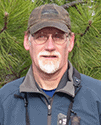 As a founding faculty member of the Natural Resources and Environmental Studies program at the University of Northern British Columbia, Dr. Michael Gillingham earned the ranks of Associate Professor and Professor of Ecosystem Science and Management at the university. His teaching emphasizes the use of quantitative analysis in wildlife research and management and he has developed and delivered a wide range of undergraduate and graduate courses. Many of Dr. Gillingham’s studies examine current assumptions of how data are collected and analyzed, using a combination of statistical techniques and simulation modeling. His research projects range from specific management questions to broader theoretical investigations across a wide range of vertebrate species. He is author or co-author of 58 publications in refereed journals.
As a founding faculty member of the Natural Resources and Environmental Studies program at the University of Northern British Columbia, Dr. Michael Gillingham earned the ranks of Associate Professor and Professor of Ecosystem Science and Management at the university. His teaching emphasizes the use of quantitative analysis in wildlife research and management and he has developed and delivered a wide range of undergraduate and graduate courses. Many of Dr. Gillingham’s studies examine current assumptions of how data are collected and analyzed, using a combination of statistical techniques and simulation modeling. His research projects range from specific management questions to broader theoretical investigations across a wide range of vertebrate species. He is author or co-author of 58 publications in refereed journals.
Dr. Gillingham has been a member of TWS since 1982 and has been active at all levels of the organization, including involvement in committees and working groups. actively advances TWS’ mission of excellence through science and education, regularly attending TWS annual conferences to present his research and encourage the professional development of his graduate students. In 2008 he engaged and led students in the hard work of developing a new student chapter at the University of Northern British Columbia. The effort resulted in the chartering by TWS of Canada’s 4th student chapter: The UNBC Fish and Wildlife Student Chapter of The Wildlife Society, and Dr. Gillingham has served as the faculty advisor ever since.
Karla Guyn
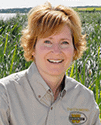 Dr. Karla Guyn made headlines recently when she was named the first female CEO of Ducks Unlimited Canada, a important step for the progression of diversification in the wildlife profession. But as TWS and DU Canada board member Wini Kessler says, the selection was based strictly on merit. After receiving a bachelor’s degree in wildlife from the University of Montana in Missoula, she began working at a research station on Lake Manitoba and fell in love with wetlands and waterfowl. As part of her Ph.D. research at the University of Saskatchewan , Guyn examined the breeding ecology of northern pintails — a project that was funded by Ducks Unlimited Canada and served as Guyn’s initial link to the organization. Her subsequent list of achievements and accomplishments with the DU Canada are vast and ongoing.
Dr. Karla Guyn made headlines recently when she was named the first female CEO of Ducks Unlimited Canada, a important step for the progression of diversification in the wildlife profession. But as TWS and DU Canada board member Wini Kessler says, the selection was based strictly on merit. After receiving a bachelor’s degree in wildlife from the University of Montana in Missoula, she began working at a research station on Lake Manitoba and fell in love with wetlands and waterfowl. As part of her Ph.D. research at the University of Saskatchewan , Guyn examined the breeding ecology of northern pintails — a project that was funded by Ducks Unlimited Canada and served as Guyn’s initial link to the organization. Her subsequent list of achievements and accomplishments with the DU Canada are vast and ongoing.
Guyn’s relationship with TWS began in 1987 during her stint at the University of Montana. Since joining as a student she has continued to be active at both the local and parent society levels. She has been a member of Annual Conference Contributed Paper Review Committee, organized Annual Conference Symposia, served as president of the Manitoba Chapter, and served on various other committees.
David Haukos
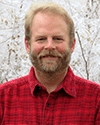 As Unit Leader of USGS’ Kansas Cooperative Fish and Wildlife Research Unit, Dr. David A. Haukos has made substantial contributions to the wildlife profession in research, mentorship and service activities. Over his research career, he has held over $13 million in extramural funding for wildlife research, published two books and more than 100 peer-reviewed articles and book chapters, and been co-author on more than 350 conference presentations. His main contributions have been in the conservation of the playa lakes ecosystem in the western Great Plains, management of migratory waterfowl, and the conservation of prairie chickens as sensitive wildlife species.
As Unit Leader of USGS’ Kansas Cooperative Fish and Wildlife Research Unit, Dr. David A. Haukos has made substantial contributions to the wildlife profession in research, mentorship and service activities. Over his research career, he has held over $13 million in extramural funding for wildlife research, published two books and more than 100 peer-reviewed articles and book chapters, and been co-author on more than 350 conference presentations. His main contributions have been in the conservation of the playa lakes ecosystem in the western Great Plains, management of migratory waterfowl, and the conservation of prairie chickens as sensitive wildlife species.
Haukos is a long-standing member of TWS who has made substantial contributions to the society over the past three decades. After joining as a student in 1984, he quickly became a Certified Associate Wildlife Biologist in 1987, and eventually a Certified Wildlife Biologist in 1994. At a national level, Haukos served two six-year terms as an Associate Editor on the editorial board for the Wildlife Society Bulletin and was recently selected by The Wildlife Society to become the new Editor-in-Chief for the publication. In the Central Mountains and Plains Section, he was the local host and Coordinator for the Planning Committee for 2015 Annual Meeting. Haukos has been involved with state and student chapters of The Wildlife Society as well, namely serving as the current faculty advisor for the Student Chapter of The Wildlife Soiety at Kansas State University. As a member of the Kansas Chapter and formerly the Texas Chapter, he has served on a number of committees and received several awards for his work.
Karl Martin
 The theme of Dr. Karl Martin’s professional record is that of leadership. The bulk of Martin’s career before joining University of Wisconsin Extension has been spent conducting and administrating research efforts. This research was, given the agency responsibilities of his employer, focused on applied questions and monitoring programs in the fields of forest and wildlife management. More so than most, Martin left his creative mark on these programs. Examples include SNAPSHOT Wisconsin, a landscape scale project using remotely triggered cameras to monitor wildlife and the Wisconsin DNR’s Managed Old Growth Study, a stand-level manipulative experiment to determine the degree to which silvicultural techniques can be used to accelerate development of old-growth structure in northern hardwoods forests. In his short time working with the UW’s department of Forest and Wildlife Ecology, Martin was able to use state funding to leverage formula funds for collaborative research with the College of Agriculture and Life Sciences (CALS; something that had never occurred before) and to gain agency support for a new wildlife faculty position dedicated to citizen science and climate change.
The theme of Dr. Karl Martin’s professional record is that of leadership. The bulk of Martin’s career before joining University of Wisconsin Extension has been spent conducting and administrating research efforts. This research was, given the agency responsibilities of his employer, focused on applied questions and monitoring programs in the fields of forest and wildlife management. More so than most, Martin left his creative mark on these programs. Examples include SNAPSHOT Wisconsin, a landscape scale project using remotely triggered cameras to monitor wildlife and the Wisconsin DNR’s Managed Old Growth Study, a stand-level manipulative experiment to determine the degree to which silvicultural techniques can be used to accelerate development of old-growth structure in northern hardwoods forests. In his short time working with the UW’s department of Forest and Wildlife Ecology, Martin was able to use state funding to leverage formula funds for collaborative research with the College of Agriculture and Life Sciences (CALS; something that had never occurred before) and to gain agency support for a new wildlife faculty position dedicated to citizen science and climate change.
Early in his career, Martin became very intentional in building his own capacity as an administrator by seeking out and obtaining training in administration and leadership within Wisconsin state service and within The Wildlife Society. He first joined TWS as an undergraduate at the University of Wisconsin in 1989 and has been a member ever since. He was certified as an Associate Wildlife Biologist in 1994 and as a Certified Wildlife Biologist in 1997. Martin recently finished a term on the parent Society’s Executive Council as the North Central Section Representative and has served as a poster committee chair for both the 3rd and 4th Annual meetings. Martin also co-chaired the arrangements committee for the 2013 meeting and co-chaired TWS’ Climate Change Working Group from 2010-2012. He has served as Associate Editor for The Journal of Wildlife Management and is a regular reviewer for for both JWM and WSB. He has served as president of the Wisconsin Chapter and is a lends great support and contribution to the University of Wisconsin student chapter.
Michael Mengak
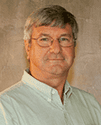 University of Georgia Warnell School of Forestry and Natural Resources Professor Dr. Michael Mengak has been with the university for 15 years, serving as instructor in courses required in the Wildlife Major for the Bachelor of Science in Forest Resources Degree. Mengak is advisor to over 50 undergraduate students and major professor or co-major professor to 24 graduate students in wildlife ecology. He has published 140 papers, book chapters, monographs, journals, proceedings, technical bulletins, final reports, technical or trade journals and abstracts and 110 extension book chapters, bulletins and outreach publications. He has given dozens of presentations at international, national, regional, state and local scientific conferences and has given 180 presentations to over 6,500 people at extension meetings and trainings. He’s created websites on Deer and Forests and Georgia Wild Pigs. Since 2001, Mengak has received 29 research grants totaling over $1.5 million.
University of Georgia Warnell School of Forestry and Natural Resources Professor Dr. Michael Mengak has been with the university for 15 years, serving as instructor in courses required in the Wildlife Major for the Bachelor of Science in Forest Resources Degree. Mengak is advisor to over 50 undergraduate students and major professor or co-major professor to 24 graduate students in wildlife ecology. He has published 140 papers, book chapters, monographs, journals, proceedings, technical bulletins, final reports, technical or trade journals and abstracts and 110 extension book chapters, bulletins and outreach publications. He has given dozens of presentations at international, national, regional, state and local scientific conferences and has given 180 presentations to over 6,500 people at extension meetings and trainings. He’s created websites on Deer and Forests and Georgia Wild Pigs. Since 2001, Mengak has received 29 research grants totaling over $1.5 million.
Mengak has been a member of the Virginia Tech, Georgia and Clemson student chapters of TWS, the Virginia and Georgia Chapters, the Southeastern Section, and the parent Society. He’s been a Certified Wildlife Biologist since 1991 and has served on several committees. He has been active with the Wildlife Damage Management Working Group, serving as secretary/treasurer and chair. He has been a reviewer, co-organizer and presenter at the TWS Annual Conference, the International Wildlife Management Congress, and local meetings. Mengak also regularly reviews articles for the Journal of Wildlife Management and Wildlife Society Bulletin.
Darren Miller
 TWS Vice President Dr. Darren Miller works in the private sector as Science Advisor/Southern Environmental Research Manager at Weyerhaeuser Company. Miller’s responsibilities within the company have steadily increased in his 18 years with them, as has his stature as a leader in the field of wildlife ecology and natural resources management. He has published 88 peer-reviewed papers, written two book chapters, served as an editor for three books, prepared 11 other scientific publications, and provided well over 100 professional scientific presentations. His publications suggest a very diverse research background, with projects focusing on vegetation, invertebrates, herpetofauna, birds and mammals. Dr. Miller also demonstrates substantial research depth regarding his understanding of forest management and its role in conservation of natural resources; virtually all of his research focuses on understanding how forest management activities influence wildlife and their habitats. His work regarding effects of silvicultural practices on wildlife is among the most comprehensive in the Southeast.
TWS Vice President Dr. Darren Miller works in the private sector as Science Advisor/Southern Environmental Research Manager at Weyerhaeuser Company. Miller’s responsibilities within the company have steadily increased in his 18 years with them, as has his stature as a leader in the field of wildlife ecology and natural resources management. He has published 88 peer-reviewed papers, written two book chapters, served as an editor for three books, prepared 11 other scientific publications, and provided well over 100 professional scientific presentations. His publications suggest a very diverse research background, with projects focusing on vegetation, invertebrates, herpetofauna, birds and mammals. Dr. Miller also demonstrates substantial research depth regarding his understanding of forest management and its role in conservation of natural resources; virtually all of his research focuses on understanding how forest management activities influence wildlife and their habitats. His work regarding effects of silvicultural practices on wildlife is among the most comprehensive in the Southeast.
A longtime member of the Society, Miller is currently on the Executive Committee as vice president. He is a charter member and one of the top donors to The 1,000 and has won a couple of awards at the national level. His presidency follows a stint on Council as the Southeastern Section Representative which included several positions on various committees and tasks. He was a member of two student chapters, and served as president of the Mississippi State University student chapter before moving on to the professional state chapter, where he also served as president. He has served as associate editor and co-editor of JWM and WSB. Miller regularly attends and participates in conferences and activities at the state, section and parent society levels, and even attended the International Wildlife Management Congress in Sapporo, Japan, in 2015 as a symposium organizer and plenary speaker.
Valorie Titus
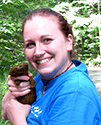 Dr. Valorie Titus is an Assistant Professor of Natural Resource Management at Green Mountain College in Vermont. In addition to her service to The Wildlife Society, she is extremely active in several other professional organizations, including Partners for Amphibian and Reptile Conservation, American Society of Ichthyologists and Herpetologists, Society for Conservation Biology, Society for the Study of Reptiles and Amphibians, and Herpetologists’ League. She has seven publications in peer reviewed journals with more articles in prep, and has published articles in Conservation Genetics, Herpetological Review, and the Journal of Wildlife Disease. Titus’ doctoral research on the endangered tiger salamander produced information that was used by the New York Department of Environmental Conservation in establishing management guidelines in the species range.
Dr. Valorie Titus is an Assistant Professor of Natural Resource Management at Green Mountain College in Vermont. In addition to her service to The Wildlife Society, she is extremely active in several other professional organizations, including Partners for Amphibian and Reptile Conservation, American Society of Ichthyologists and Herpetologists, Society for Conservation Biology, Society for the Study of Reptiles and Amphibians, and Herpetologists’ League. She has seven publications in peer reviewed journals with more articles in prep, and has published articles in Conservation Genetics, Herpetological Review, and the Journal of Wildlife Disease. Titus’ doctoral research on the endangered tiger salamander produced information that was used by the New York Department of Environmental Conservation in establishing management guidelines in the species range.
Those who nominated Titus believe she embodies what TWS expects from a Fellow — someone that will be an ambassador for the organization and the profession. She has demonstrated exceptional dedication to TWS and has been an active member since joining in 2003. In 2012 she graduated from the TWS Leadership Institute. Titus has served as the New York chapter’s newsletter editor, secretary and treasurer before stepping up to take the vacant vice president position in 2011. She currently serves as president of the New York chapter. At the section level she has instructed field courses and volunteers regularly for various activities and training sessions. She was co-advisor of the first TWS virtual student chapter at American Public University and is currently working to develop a chapter at Green Mountain College. She has been, and will continue to be, a role model for students and young professionals.
Header Image: Dr. Carol Chambers receives her TWS Fellows award during the 2016 Annual Conference in Raleigh, North Carolina. ©TWS






